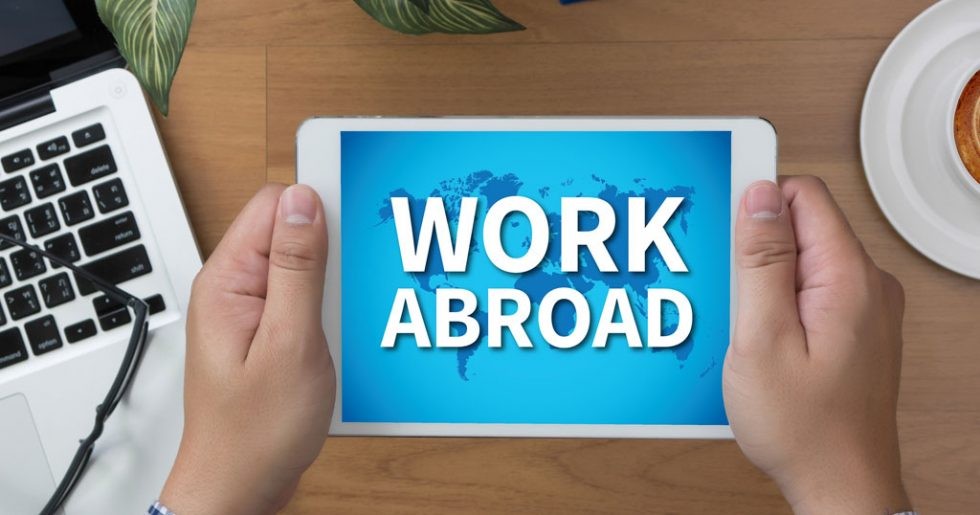Simple Tips On How To Protect Your Laptop While Travelling
The popularity of laptop computers stems from the fact that they’re so portable. You can slip them into a case and take them with you anywhere. Need to work on the plane or at a hotel? A laptop makes it easier to do than a mobile device.
With the mobility of a laptop computer, also comes the fact that it’s much more likely to be lost, stolen, or damaged than a standard desktop PC. It’s estimated that a laptop is stolen approximately every 53 seconds and during the lifetime of a laptop computer, there is a 1 in 10 chance of it being stolen.
1. Use an Anti-Theft Bag
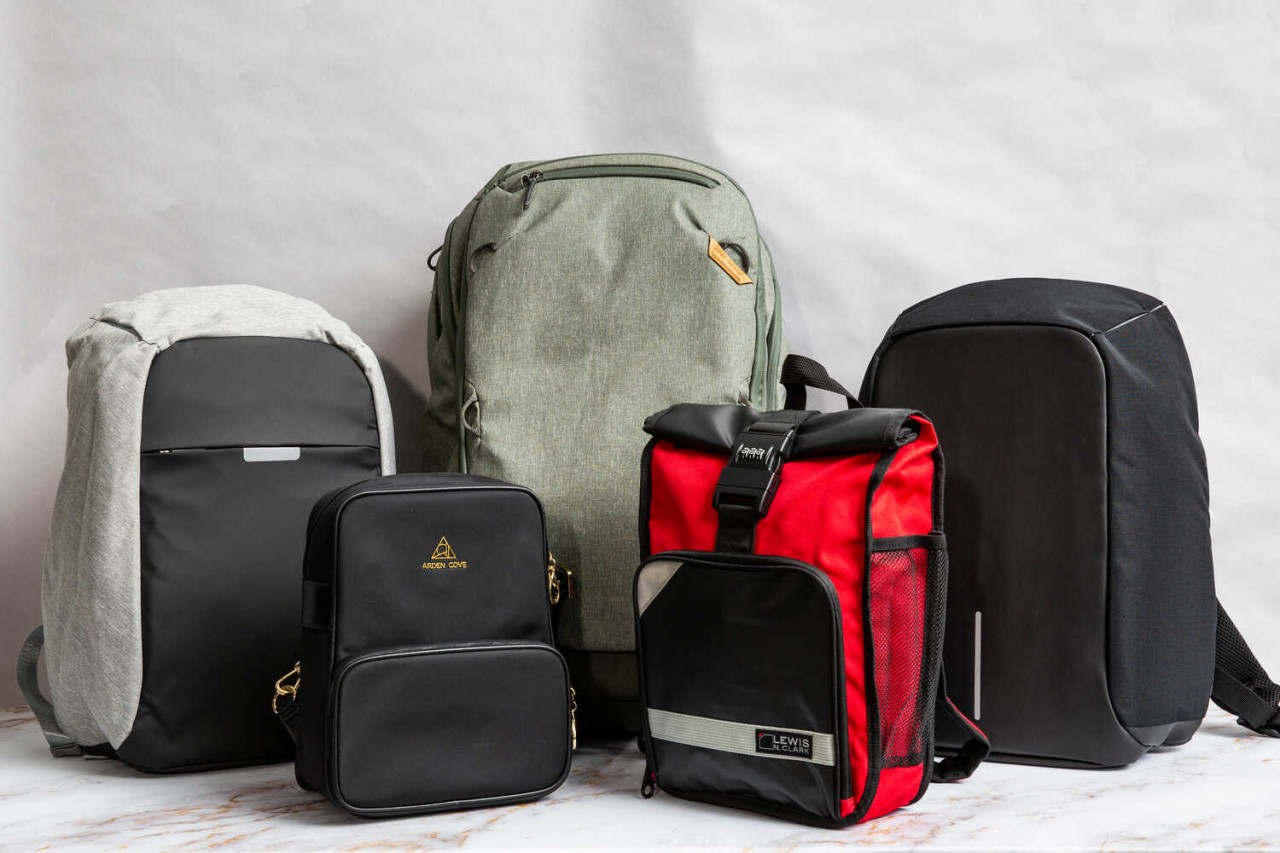 |
| Photo: Travel + Leisure |
No matter where you go in the world, thieves will likely be a problem. Whether you're visiting a cafe around the block or going to the airport, it's vital to pay extra attention to your laptop's safety.
One of the best ways to protect your laptop from theft is to invest in a high-quality anti-theft laptop bag or backpack. Buying an ordinary bag just won't do when it comes to safeguarding your portable computing machine.
A laptop backpack or bag is specifically designed to provide protection and will often come with a range of security features. Some features to look out for are an anti-theft lock, secret pockets, cut-proof material, and locking cables.
Anti-theft laptop bags come at a price that's usually higher than your average bag. However, it's a lot cheaper to buy a decent bag than to replace a stolen laptop.
How to Pick the Best Anti-Theft Bag
Getting a secure backpack from a reputable company is key. In this article, we will focus on bags made by Pacsafe. Pacsafe is the pioneer in the anti-theft travel goods space, having been around for over 20 years and holding 40+ patents for their anti-theft technology.
Pacsafe’s anti-theft bags feature lockable zippers and are made from cut-resistant materials to protect your belongings, built-in anchor straps or stainless locking cables to protect the bag itself, plus RFID blocking pockets to protect you against identity theft and credit card skimming (another significant risk factor for travelers). Throw in great organization and storage for things like your passport, phone, laptop, and clothes, and you have a portable travel companion to keep your gear safe and in easy reach.
2. Combination Locks
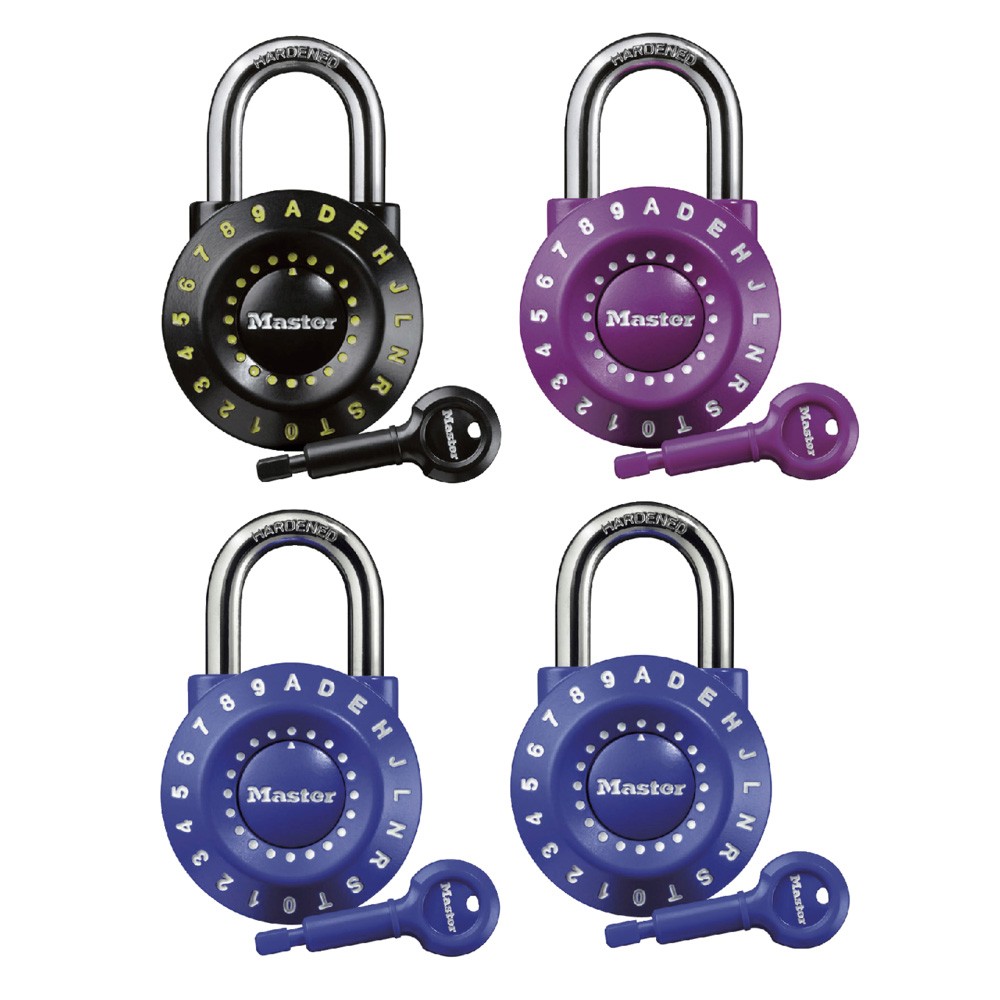 |
| Photo: Master Lock |
This is always recommended. Combination locks won’t solve all your problems. Some criminals will not be put off by them, but the extra level of protection can mean that people are likely to look elsewhere for an opportunity to steal a laptop.
Combination locks also send off the right message, that you have thought about the safety of your laptop. This also tells potential thieves that you are likely to have similar protection on your software and that your laptop may even be useless once they have stolen it.
Advantages
- Combination Locks do not require you to carry a key around with you to unlock the lock.
- Mechanical Combination Locks can be bought in a range of different colours to suit your preferences.
- Mechanical Combination Locks can be bought in 3 or 4 Dial options meaning you can be mildly or highly sure no one is going to guess your code.
- Combination Locks can be used with an override key if the code is forgotten.
- Combination Locks are quick and easy to use, easier to carry around with you, and easy to set up and reset.
- Mechanical Combination Locks are able to be used outside which means it doesn't matter if they get wet or da
3. Keep It in the Laptop Compartment
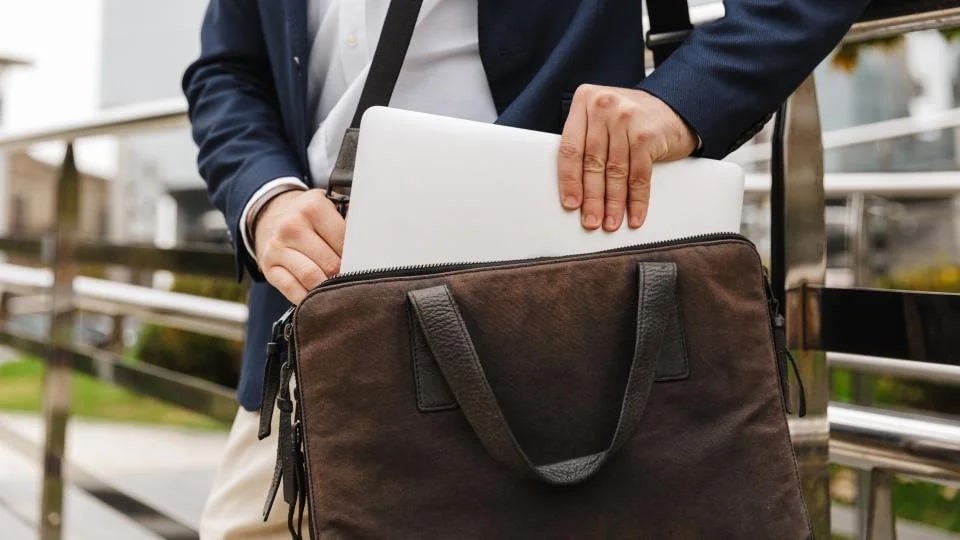 |
| Photo: Expert Reviews |
The laptop compartment is there for a reason—to protect your laptop; So, use it! Unlike other ordinary bags, a laptop bag or backpack will have a specific compartment with extra cushioning and padding. This added protection is there to prevent damage from unexpected bumps and bangs.
When you purchase a bag, always check the laptop compartment first. Ensure there's adequate padding on the top, bottom, and sides. Also, remember to measure the size before purchasing it so that you know it'll be the correct fit.
4. Keep it Backed Up
 |
| Photo: CloudINX |
Depending on what you use your laptop for this can either be complicated or super easy. If you do all your work on a server or store all of your files remotely, it may not be an issue. Lots of us simply have some photographs that we would hate to lose. You can simply put these on an external hard drive, or even burn them to a couple of DVDs or memory sticks before you go, this way you don’t need to worry.
Larger projects are where it becomes more difficult, if you are a video editor or music producer and have a lot of large files, external drives are recommended for your backups.
5. Shut Down Your Laptop and Close It Completely
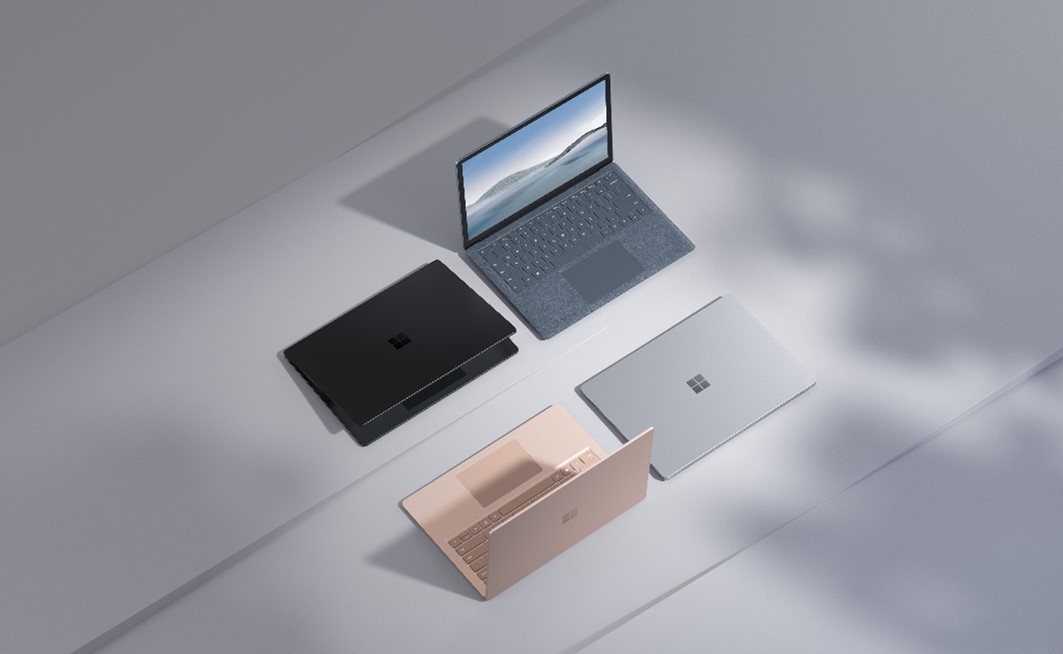 |
| Photo: Microsoft News |
Never keep your laptop running when you're not using it, especially if you're going to store it in your laptop bag. By simply closing it, your laptop could overheat, and this can cause damage to the internal components. Once you're done using your laptop, save your work, shut it down completely, and safely place it in your bag before you travel anywhere.
A total shutdown is only necessary if you don't plan on using your laptop again for a long time. Otherwise, you can switch it to sleep or hibernate mode if you'll be using it again soon.
Besides shutting down your laptop, you also need to make sure you close it properly before putting it away. If you're using a convertible or hybrid laptop, the screen must be in the correct position, facing the keyboard. If not, the screen could end up badly damaged.
6. Use Two-Factor Authentication for Logins
If someone gets their hands on your laptop, can they get into multiple accounts because you’re already logged in? When traveling, you need to take additional precautions when it comes to being logged in or having saved passwords in browsers.
It’s best to log out of any auto-logins (Gmail, Facebook, etc.) and put two-factor authentication in place to help prevent your accounts from being compromised.
7. Take Extra Measures on Rainy Days
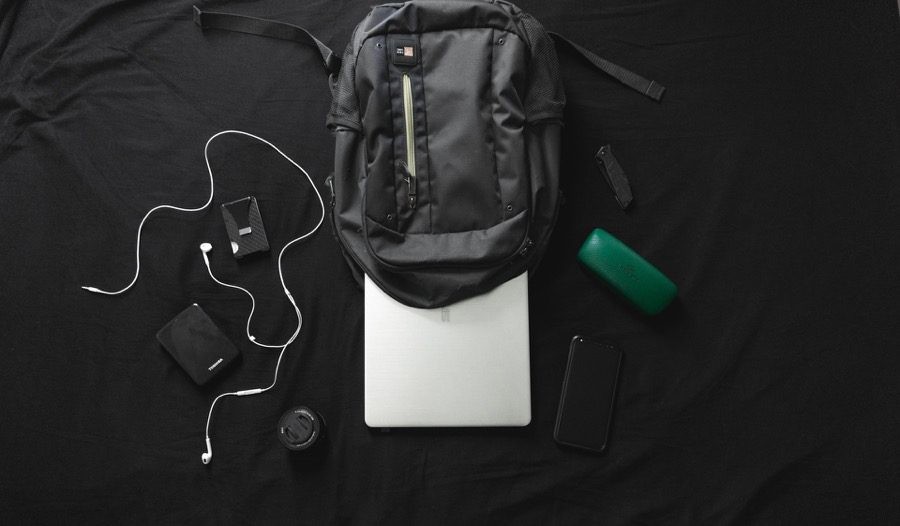 |
| Photo: Guiding Tech |
The weather can be unreliable at times. If you're uncertain whether it will rain or not, and you need to travel somewhere with your laptop, you need to have the proper protection.
To avoid ending up with a wet laptop that likely won't work ever again, there are a few steps you can take on a rainy day. Your best bet is to store your laptop in a waterproof laptop bag or backpack for protection from any water damage.
If your backpack is not waterproof, a rain cover is an inexpensive item you can invest in and keep in your bag for weather emergencies. Alternatively, you can simply check the weather beforehand and bring an umbrella with you.
8. Use a Virtual Private Network (VPN)
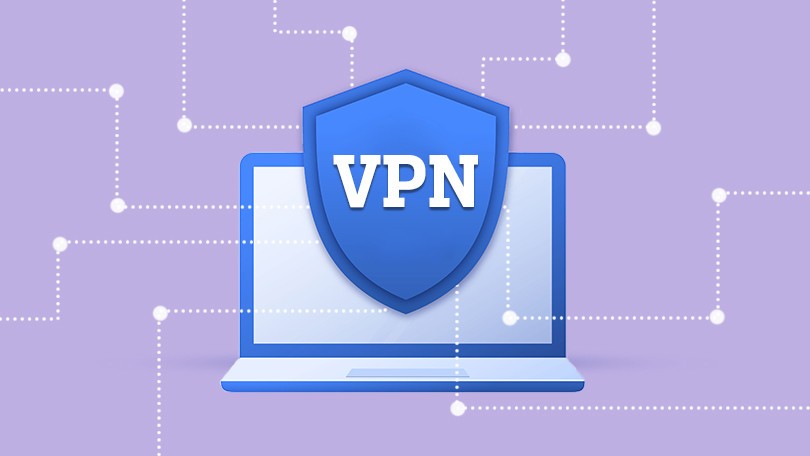 |
| Photo: Techdee |
Connecting to free Wi-Fi comes with all types of security concerns. Avoid any potential hacks through an unsecured network by using a VPN to connect when you’re away from home or the office. A VPN gives you a secure connection, even on free public Wi-Fi.
Secure Your Network
The benefits of using a VPN are vast. One of the most important is the fact that businesses can effectively secure their network. Without your knowledge, an application or website can keep track of your activity online. They can then analyze the data they collect and use it to try to target you with ads. Without a VPN, you may experience an influx of pop-up ads that can interrupt your browsing experience and be a general nuisance.
If you use a VPN, it can stop people, software, and web browsers from gaining access to your connection. This keeps the information you transmit and receive secure and anonymous.
Hide Your Private Information
Another one of the primary benefits of a VPN is the ability to hide your private information. Hackers can use a variety of methods to intercept sensitive information you enter on websites. Using that information, they can try to impersonate you, gaining access to bank accounts, credit card information, and more. With a VPN, however, you can enjoy high-level security, such as 256-bit encryption. This makes all your communications online look like nonsensical, garbled text and characters to anyone who is able to find a way to intercept them.
Prevent Data Throttling
Data throttling happens when you have consumed a specific amount of your available data, and your internet service provider (ISP) then decides to slow your service down. If you have a VPN, you'll soon find one of the benefits of a VPN is the ability to avoid a data cap, particularly because not even your ISP can see how much data you are using. This may be especially helpful for employees who have to use data plans on their smart devices while accessing the internet when on the road.
Avoid Bandwidth Throttling
Bandwidth throttling is when your internet speed is intentionally slowed down by your ISP or someone else who can control how your Wi-Fi network performs. This is sometimes done when you visit certain websites or engage in certain internet activity. If you use a digital VPN service, the mobile traffic coming from your device can be encrypted. With the encryption, others cannot see the websites you are visiting.
Because bandwidth throttling is sometimes triggered by the sites you use or the type of activity you engage in, if your ISP cannot see the data going to and from your device, they cannot throttle it down in these situations. They may still throttle your data during certain times of the day, however, to free up bandwidth for their other users.
In most situations, employees and others using your internet connection will not be throttled based on their internet usage, but using a VPN allows companies to conceal their data transmissions and eliminate the possibility altogether.
Get Access to Geo-blocked Services
With a VPN, you can get another Internet Protocol (IP) address. IP addresses indicate where the device is located as it browses the internet, streams content, or engages in other online activity. Some sites and services do not allow users from certain countries to access some or all of what they have to offer. This is common with streaming services that cater to specific locations.
It is also common for some business websites to limit how you can use their public work services based on where you are, such as getting quotes or accessing more specific information about their services. If you use a VPN, you can make it look like you are using the internet from a location that is acceptable to the service you are trying to access.
If your employees need to have full access to all safety information and services offered by websites, a VPN can make it easier.
 | 3 Easy Ways to Decluttering After the Holidays Like A Pro Are you ready to get busy, declutter your home with for a fresh start after the holiday? |
 | Top 10 Things You Do Wrong When Cold Calling and How to Fix Them According to professional marketer Charlie Cook, about 2% of cold calls result in a sale, and there is always something you can do better to ... |
 | Useful Tips For Having A Wonderful Workcation Workcation has been a new working style for a long time, and they bring both benefits and disadvantages. There are some useful tips for you ... |
Recommended
 Handbook
Handbook
Vietnam Moves Up 8 Places In World Happiness Index
 Handbook
Handbook
Travelling Vietnam Through French Artist's Children Book
 Multimedia
Multimedia
Vietnamese Turmeric Fish among Best Asian Dishes: TasteAtlas
 Handbook
Handbook
From Lost to Found: German Tourist Thanks Vietnamese Police for Returning His Bag
Popular article
 Handbook
Handbook
Prediction and Resolution for the Disasters of Humanity
 Handbook
Handbook
16 French Films To Be Shown For Free During Tet Holiday In Vietnam
 Handbook
Handbook
Unique Cultural and Religious Activities to Welcome Year of the Snake
 Handbook
Handbook







